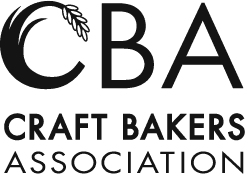Oct 6, 2025
Hugo Walker
Imagine losing £10,000 this month, not because of poor sales or rising costs, but because an order never made it from your customer's desk to your factory floor. For many food manufacturers, this is not imagination; it's reality. Manual order processes, from phone calls to emails to spreadsheets, are silently draining revenue and wasting staff time.
Manual order entry can consume up to 15% of a food manufacturer's customer service team's time, a significant cost when factoring in wages, lost opportunities and the extra hours spent correcting errors.
Research from OrderEase also shows that manual data entry can have error rates as high as 4%, meaning a company processing 10,000 orders per month could see around 400 orders containing mistakes. Correcting these errors can cost thousands every month.

How Manual Order Entry Costs You More Than You Think
The consequences of manual order entry go beyond wasted time. Missed orders mean lost revenue, incorrect deliveries create disputes, and delays frustrate customers, risking loyalty. Even minor errors can cost hundreds of pounds per order once you consider product loss, corrective shipping and administrative time spent resolving mistakes.
A report from Parseur highlights that manual data entry tasks can cost companies an average of £23,000–£28,000 per employee annually, underscoring the significant financial impact of solely relying on manual processes. For manufacturers handling hundreds of orders a week, the cumulative effect is substantial. It’s not just about inefficiency. It's about the direct impact on your bottom line.
"mezzeIQ has saved us £100K+ in Customer Service recruitment."
— Tiffin Sandwiches
Reclaim Revenue and Reduce Overhead with Automation
B2B ordering platforms like mezzeIQ change the game by removing repetitive, error-prone steps in manual processes. Orders are validated in real-time, ensuring they meet business rules. AI reminders prevent missed orders, dashboards provide instant visibility into every transaction, and staff are freed from tedious data entry.
Manufacturers using mezzeIQ report reductions of 60–70% in customer service handling time while recovering up to 30% of otherwise lost orders. These improvements translate into tangible gains: fewer errors, faster turnaround and more satisfied customers.
The Customer Experience Advantage
Automation does more than save money — it improves service quality. Accurate, timely orders build confidence with your customers, fostering stronger relationships and encouraging repeat business. In an industry where reliability is key, a seamless B2B ordering process can be a major differentiator.
In 2025, customer self-serve should be standard practice. Think about it, if your customers can order their groceries from Tesco or Sainsbury's, why can't they order your products in the same way?
"Our customers are our priority; mezzeIQ offers an enhanced Customer Experience to them all."
— Wright's Flour
The Bottom Line
Manual order entry may feel manageable, but the hidden costs are real. Errors, lost sales, and wasted staff time add up quickly. By embracing automation, food manufacturers can reclaim lost revenue, cut operational overhead and provide a superior customer experience.
Efficiency, accuracy and reliability are not optional. They are essential for growth. In the modern food manufacturing landscape, automation is not just a tool — it is a competitive advantage.
Leading food businesses are choosing innovative, industry-specific software to stay competitive. mezzeIQ is purpose-built for that — and for you.
Ready to see how it works? Book a demo.






